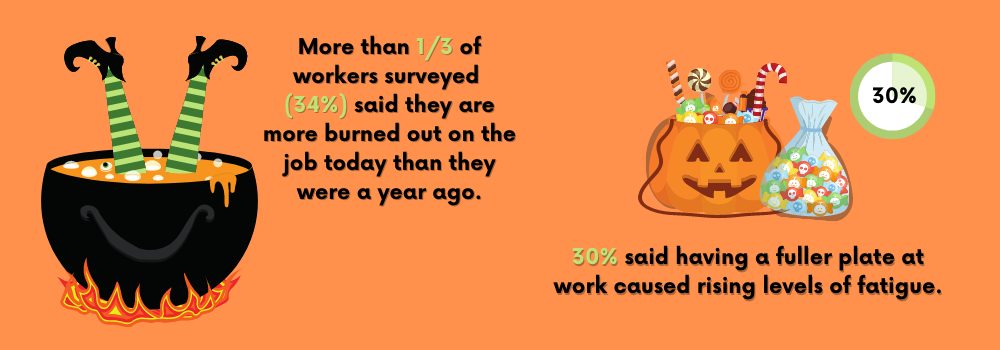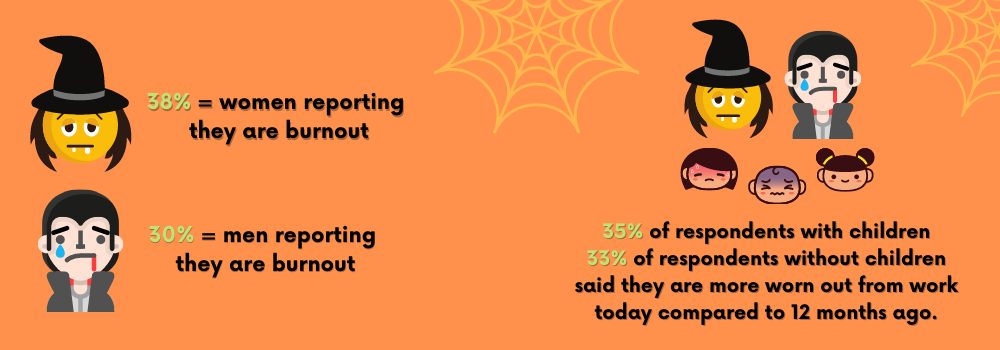Scary stats show employees are more burnt out than ever
Drowning in work and feeling drained? Many professionals are, new research from staffing firm Robert Half shows. More than one-third of workers surveyed (34%) said they are more burned out on the job today than they were a year ago.
Of that group, 30% pointed to having a fuller plate at work as the top reason for rising levels of fatigue. Another 45% of professionals noted they are as burned out now as they were 12 months ago, and 21% reported a drop in burnout.

Other survey findings:
- Women (38%) were more likely than men (30%) to report a rise in burnout.
- Nearly an equal percentage of respondents with children in their household (35%) and those without (33%) said they are more worn out from work today compared to 12 months ago.
In a separate survey, 88% of senior managers said they are worried about staff retention. Almost half said their concern is that employees are managing heavier workloads and are on the brink of burnout.
HR can help prevent staff burnout by:
- Urging supervisors to prioritize. That requires checking regularly with team members to discuss current projects and obstacles.
- Encouraging time off. Remind staff to use their vacation days.
- Sharing helpful resources. Promote wellness offerings, and pass along information about free classes and programs that support a healthier lifestyle.
Pandemic has taken a toll on our capacity for change
The amount of change the average employee can absorb without becoming fatigued in 2020 has been cut in half compared to 2019, according to the Gartner business advisory firm. Amid worries about the economy, job security, their health and the health of their loved ones, employees’ capacity to take on change in the workplace has plunged significantly.
“The amount of change employees can absorb without fatigue—negative reactions to change such as burnout, frustration or apathy—has plummeted at a time when more change is precisely what organizations need in order to reset,” said Jessica Knight, vice president in the Gartner HR practice.
To increase employees’ ability to absorb change, organizations need to transform how they lead change, Gartner consultants advise. They say reinforcing two core competencies will be key to HR efforts to lead successful change in 2021:
Trust: The extent to which employees believe key stakeholders—leaders, managers, co-workers and HR—have their interests in mind and do what they say they are going to do.
Team cohesion: The extent to which teams share a sense of belonging and connection, along with commitment to and accountability for a common goal.
Gartner research indicates that employers focused on fostering trust and team cohesion are about twice as capable of sustaining change initiatives as other organizations.








